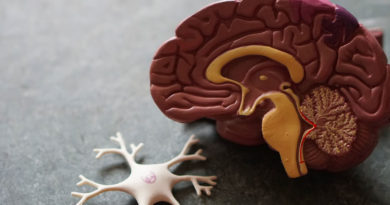Early Onset Dementia
Dementia is a common health concern associated with old age but for some people it can come earlier. The loss of cognitive abilities and loss at a younger age is known as early-onset dementia. Treatment is difficult because it is very difficult to diagnose early dementia.
Rush Memory Center in Chicago medical director Raj C. Shah, MD says “A lot of dementia cases in the United States involve people past the age of 65, 50% of these cases involve people past 85 years; however, we have seen 35 year-old patients who manifest signs of the disease.”
Alzheimer’s disease occurring prior to the age of 65 (usually during the 40s or 50s) is seen in 6% of the people with this condition. Almost 60% of those cases are inherited, 13% in families that have three generations of Alzheimer’s. This disease is the most often the common reason for the symptoms of dementia. Other causes of early-onset dementia include:
- Parkinson’s disease – The brain stops manufacturing dopamine resulting in the gradual loss of motor skills such as balance, walking, etc.
- Frontotemporal dementia – This condition causes the brain to shrink. It can be a fatal disorder.
- Vascular dementia – Can start in mid-life and be caused by mini-strokes that alter the flow of blood to areas of the brain.
Early Dementia Complications
The complications associated with early-onset dementia that do not manifest in later years, include:
- Difficulty in diagnosing dementia – When a person in mid-life someone begins to lose cognitive function, the doctor usually does not first consider dementia as a possible diagnosis. This means that a considerable amount of time may pass by before a correct diagnosis is arrived at. In the meantime, the symptoms of dementia can severely affect work obligations and personal relationships.
- Services availment – Funding programs and services are usually only available for people past the age of 65. This means that patients suffering from early onset dementia and their families have to struggle a bit more to get the support they need.
- Finances – The possible loss of job and the burdens associated with early dementia can significantly impact a family’s financial situation.
- Employment – Treatment usually involves assisting patients to hold on to their job or be employable as long as possible. Both families and patients may need to cooperate with employers to adjust tasks or workloads that suit the patient’s abilities.
- Family – Unlike dementia patients who are over 65, people with early-onset dementia are usually not finished with their child-rearing responsibilities. They are oftentimes busy raising their children, financially supporting their young adult kids in college, and even taking care of their aging parents.
Handling an Early Dementia Diagnosis
Dementia treatment involves various types of services both focusing on the patient and his/her family. These services include occupational therapists, a medical team, community agencies or services, or support groups.
For the spouses and children of the dementia patient, therapy may be required to learn to handle resentment, grief, anger over an early dementia diagnosis.
Some people think that the progression of early dementia occurs more rapidly than later onset dementia. Sometimes, this is the case since everything dealing with dementia treatment, including entering a nursing home, is occurring at an earlier age rather than occurring more severely or quickly.
Families can be very much affected by early onset dementia. But with the tireless efforts of family, medical team, friends, and even coworkers, patients have a good chance of maintaining their quality of life for several more years.



